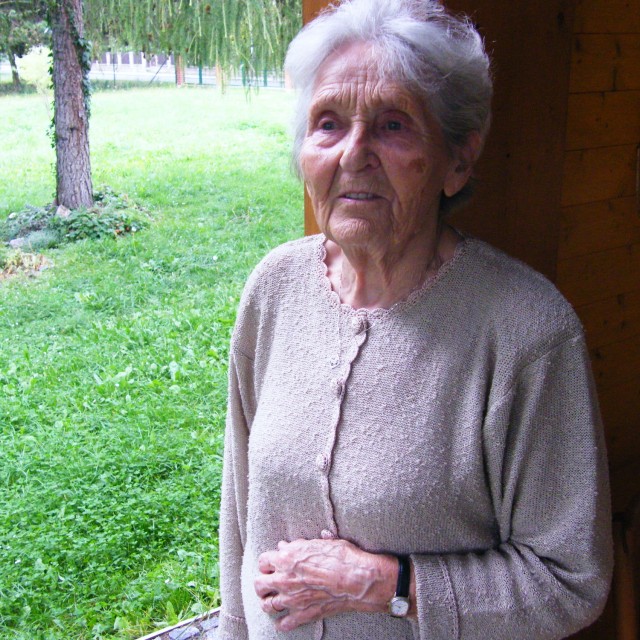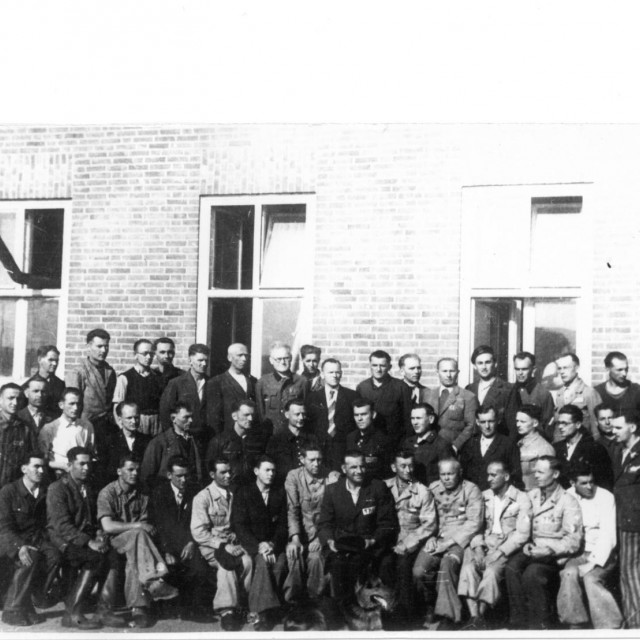
Milada Cábová, née Říhová
Milada Cábová, by maiden name Říhová, was born in 1924 in Lidice. The Říhas raised two daughters, Milada and her sister Věra, who was ten years older and came from her mother’s previous marriage. The Říha family lived in the house number 89 in Lidice. Milada attended school in Buštěhrad, where she was trained to become a dressmaker. She was not able to finish her studies, however, because in June 1942, she was arrested, together with the other inhabitants of Lidice, and subsequently transported first to the building of the grammar school in Kladno, and from there straight to the forced labor camp in Ravensbrück. There, in the harsh conditions of the camp, Ms. Milada and her mother survived the war. Towards the end of the war, the Nazis attempted to get rid of the majority of the victims of forced labor camps and Ms. Milada was therefore, along with the other women from Lidice, sent on the Schwerin March during the night of April 27/28. However, the procession never made it to Schwerin. The guards were so afraid of the Red Army soldiers and the approaching front that they abandoned the women. The women finally arrived to Crivitz, where they met Czech men who were marching from the Sachsenhausen concentration camp. Both groups settled down in a forest camp and waited for liberation. They were liberated by the Red Army on May 2, 1945. Antonín Zápotocký, who was among the men from Sachsenhausen, began immediate negotiations with the Russians. He arranged the transportation of the Lidice women to Neubrandenburg and from there to Kladno. Only at the Czechoslovak border were the women told by soldiers about the annihilation of Lidice village. Buses took them to Buštěhrad where Ms. Mialda and her mother were picked up by her sister’s husband who took them to his house in Stehelčeves. After two days, Milada's fiancé František Cába came to visit her. He had waited for Milada the entire three years and had regularly sent her packages to the Ravensbrück camp. All of the Lidice women were given flats from the Kladno municipality. Milada and her mother lived in one of these flats until her fiancé got a flat in Prague. In the meantime, Milada married František in August, 1945. Their son Lubor was born in August, 1946 and four years later, their daughter was born. Milada started to work at Ruzyně Airport in 1961. At first, she was hired as a flight clerk and later she joined the passport/custom department where she was responsible for visas and exit clauses for flight staff. At the same time she also completed her education at an evening school and passed the graduation exams.



